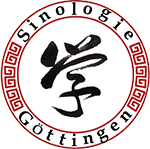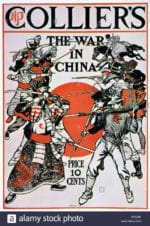Kulturwissenschaftliches Zentrum, KWZ 0.609
Prof. Selçuk Esenbel (Department of History, Boğaziçi University Istanbul): „Japan and China on the Silk Road: A Global History of Politics and Culture in Eurasia“
Kulturwissenschaftliches Zentrum, KWZ 0.609 Heinrich-Düker-Weg 14, GöttingenAbstract: Japan on the Silk Road is a global history of politics and culture from the late 19th century until the end of the second world war connected to the Great Game between competing empires of Russia, Britain, and China in the vast area of Eurasia across the Middle East and Central Asia. Between 1868-1945 […]
Prof. Jeffrey Wasserstrom (UC Irvine): “China and the World in 1900: Stories of the Boxers and the First Global War”
Kulturwissenschaftliches Zentrum, KWZ 0.609 Heinrich-Düker-Weg 14, GöttingenAbstract: This illustrated lecture, entitled “China and the World in 1900: Stories of the Boxers and the First Global War,” revisits the anti-Christian uprising and international invasion that convulsed the Qing Empire during the final year of the nineteenth century, paying particular attention to the varied ways these events were understood in different places at […]
Dr. Armin Müller (Göttingen): „Social Policy in China: Retrospect and Prospect“
Kulturwissenschaftliches Zentrum, KWZ 0.609 Heinrich-Düker-Weg 14, GöttingenAbstract: Since 1979, social protection in China has undergone fundamental institutional transformations. This presentation provides an overview of the state of the literature on social policy in the PRC, the institutional change which has characterized social protection in the reform period, and an outlook on future developments. Social protection under the planned economy was characterized […]
Prof. Dr. Jinhua Chen: Market and Merit: Reconsidering the Monastic Financial and Banking system under the Rule of Emperor Liang Wudi (r. 502-549)
Kulturwissenschaftliches Zentrum, KWZ 0.609 Heinrich-Düker-Weg 14, GöttingenScholars have made great strides to study the important role that Buddhism played in promoting economic, financial, and commercial activities in medieval China. There is, however, one limitation is in need of addressing: almost singular focus on the economic activities carried out within or in connection with the saṃgha, with little attention to the economic […]



